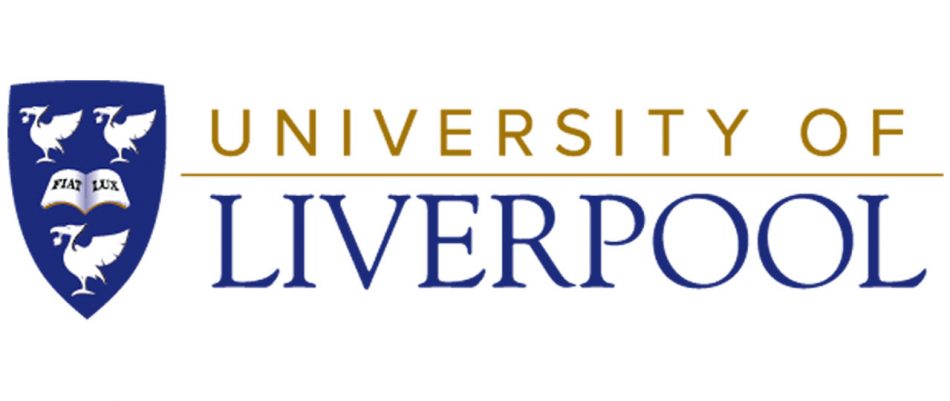Marine Biology: Exploring the Mysteries of the Ocean
Welcome to the fascinating world of Marine Biology, a field that combines science, adventure, and environmental stewardship. For Indian students dreaming of studying abroad, pursuing a degree in Marine Biology opens doors to unparalleled opportunities in ocean research, conservation, and sustainable practices. Imagine diving into coral reefs, studying marine mammals, or contributing to global efforts to protect our oceans—all while gaining a world-class education. This course page provides everything you need to know about studying Marine Biology abroad, tailored for aspiring Indian scholars.
What is Marine Biology?
Marine Biology is the scientific study of marine organisms, their behaviors, interactions, and the ecosystems they inhabit. It encompasses everything from microscopic plankton to massive whales, and from coastal mangroves to the deepest ocean trenches. This interdisciplinary field draws from biology, chemistry, physics, and ecology to understand how life thrives in saltwater environments.
The importance of Marine Biology cannot be overstated. Oceans cover over 70% of Earth's surface and produce half of the planet's oxygen. They are vital for climate regulation, food security, and biodiversity. Studying this subject equips you to address pressing issues like climate change, ocean pollution, overfishing, and habitat loss. For Indian students, who often witness the impacts of coastal erosion and marine pollution along the Arabian Sea and Bay of Bengal, this field offers a chance to make a meaningful impact on both local and global scales.
- Key Areas of Focus: Marine ecology, oceanography, fisheries science, marine conservation, and aquaculture.
- Research Opportunities: Hands-on fieldwork, including scuba diving, boat expeditions, and lab analysis of samples.
- Global Relevance: With India's extensive coastline and growing blue economy, Marine Biology graduates are in high demand back home.
Why Choose Marine Biology Abroad as an Indian Student?
Studying Marine Biology in India is rewarding, but pursuing it abroad elevates your experience to new heights. International programs offer access to diverse marine ecosystems that aren't available domestically, state-of-the-art research facilities, and collaborations with leading experts. For Indian students, this means exposure to cutting-edge technology and methodologies that can bridge the gap between Indian marine research and global standards.
Moreover, abroad programs emphasize practical training, which is crucial for building a competitive resume. You'll gain international certifications in diving and research ethics, enhancing your employability. The cultural exchange aspect is a bonus—networking with peers from around the world fosters a global mindset, essential in today's interconnected environmental challenges.
Benefits Tailored for Indian Students:
- Advanced Infrastructure: Access to underwater labs, research vessels, and marine stations not commonly found in India.
- Diverse Ecosystems: Study tropical reefs in Australia or polar waters in Canada, broadening your understanding beyond Indian waters.
- Scholarship Opportunities: Many countries offer funding specifically for international students from developing nations like India.
- Career Boost: An international degree opens doors to jobs with organizations like the UN, WWF, or Indian agencies such as the National Institute of Oceanography.
- Personal Growth: Living abroad builds independence, language skills, and adaptability—valuable for returning to India's dynamic job market.
Top Destinations for Studying Marine Biology
Choosing the right destination is key. Countries with rich marine biodiversity and renowned universities attract thousands of Indian students annually. Below is a table highlighting top study abroad options, including popular universities, program highlights, and approximate tuition fees (in USD for international students; scholarships can reduce costs).
| Country | Top Universities | Program Highlights | Tuition (per year) | Why for Indians? |
|---|---|---|---|---|
| Australia | University of Queensland, James Cook University | Great Barrier Reef access; fieldwork in tropical waters; strong focus on conservation | 25,000 - 35,000 | Similar climate to India; English-taught; post-study work visa up to 4 years |
| USA | University of California San Diego (Scripps Institution), Duke University | Advanced oceanography labs; research with NOAA; interdisciplinary marine science | 30,000 - 50,000 | STEM-designated programs for OPT extension; vibrant Indian student communities |
| UK | University of Southampton, Bangor University | Marine policy and biotech focus; access to Atlantic research; short 1-year master's | 20,000 - 30,000 | Chevening scholarships for Indians; proximity to Europe for field trips |
| Canada | University of British Columbia, Dalhousie University | Pacific and Atlantic studies; emphasis on indigenous marine knowledge; co-op programs | 15,000 - 25,000 | Affordable living; PR pathways; growing Indian diaspora |
| New Zealand | University of Auckland, Victoria University of Wellington | Sub-Antarctic research; sustainable fisheries; small class sizes | 20,000 - 28,000 | Safe environment; work rights during studies; focus on eco-tourism |
These destinations are selected for their academic excellence and support for international students. Australia and the USA top the list due to their world-leading marine research centers.
Typical Course Structure and Curriculum
Marine Biology programs abroad are designed to blend theory with practice. Bachelor's degrees usually last 3-4 years, while master's programs are 1-2 years. Expect a mix of lectures, labs, and fieldwork, with increasing specialization in later years.
Core Modules (Common Across Programs):
- Foundational Sciences: Biology, Chemistry, Physics, and Statistics for environmental data analysis.
- Ocean-Specific Subjects: Oceanography (physical, chemical, biological), Marine Ecology, and Evolutionary Biology of Marine Species.
- Practical Training: Field Techniques (diving, sampling), GIS for Marine Mapping, and Aquaculture Management.
- Advanced Topics: Marine Conservation, Climate Change Impacts, Marine Toxicology, and Biotechnology (e.g., developing algae-based biofuels).
- Electives: Options like Marine Mammalogy, Coral Reef Restoration, or Policy and Law in Marine Affairs.
Many programs include a capstone project or thesis, where you'll conduct original research—perhaps on coral bleaching in the Indian Ocean or sustainable fishing in the Pacific. For Indian students, some universities offer modules on tropical marine systems relevant to South Asia.
Assessment is diverse: exams (30%), lab reports (20%), fieldwork portfolios (30%), and group projects (20%). No two programs are identical, so check specific university websites for details.
Essential Skills You'll Develop
Beyond knowledge, Marine Biology hones transferable skills that employers value highly.
- Scientific and Analytical: Data collection, statistical modeling, and hypothesis testing using tools like R or MATLAB.
- Fieldwork Expertise: Scuba certification (PADI or equivalent), boat handling, and remote sensing techniques.
- Soft Skills: Teamwork in diverse groups, communication for scientific writing and presentations, and problem-solving in unpredictable ocean environments.
- Sustainability Focus: Ethical research practices and advocacy for marine protection.
- Tech Proficiency: Drone usage for aerial surveys and AI in biodiversity monitoring.
These skills prepare you for roles that require both intellect and adventure, setting Indian graduates apart in competitive fields.
Career Opportunities After Graduation
A degree in Marine Biology abroad launches a rewarding career. With the global marine economy projected to reach $3 trillion by 2030, opportunities abound. Indian students can leverage their international experience for roles in India or abroad.
Popular Career Paths:
- Research Scientist: Work in labs or with NGOs like Greenpeace; salary: $50,000 - $80,000 USD starting.
- Conservation Specialist: Protect endangered species at organizations like IUCN or India's Wildlife Institute.
- Aquaculture Manager: Oversee fish farming, vital for India's seafood exports; roles in companies like Avanti Feeds.
- Marine Policy Advisor: Influence laws on ocean resources with governments or the UN.
- Educator or Consultant: Teach at universities or advise on eco-tourism projects.
- Further Studies: PhD for academia or specialized fields like marine genomics.
In India, graduates find positions at the Central Marine Fisheries Research Institute or private sectors like Reliance's offshore projects. Abroad, post-study work visas (e.g., Australia's 485 visa) allow 2-4 years of employment, often leading to permanent residency.
Scholarships and Financial Aid for Indian Students
Studying abroad can be affordable with the right funding. Many scholarships prioritize Indian students for their contributions to global diversity.
- Country-Specific: Australia's Endeavour Scholarships (up to $20,000); UK's GREAT Scholarships (£10,000 for Indians); Canada's Vanier Scholarships (CAD 50,000/year).
- University Awards: Merit-based at Scripps (up to 50% tuition waiver) or UBC (entrance scholarships for high GPA).
- Indian Government Support: ICCR scholarships for full funding; PM's Scholarship Scheme for overseas studies.
- Private Options: Inlaks Shivdasani Foundation (up to $100,000) or Fulbright-Nehru for US programs.
Apply early—deadlines are 6-12 months before intake. Maintain a GPA above 3.0/4.0 and strong IELTS/TOEFL scores (6.5+ overall) to qualify.
Application Tips and Next Steps for Indian Students
Getting started is straightforward. Most programs require a bachelor's in a related field (e.g., Biology or Environmental Science) for master's entry, with 60-70% marks from recognized Indian universities like DU or IITs.
Key Requirements:
- Academic Transcripts: And letters of recommendation from professors.
- English Proficiency: IELTS/TOEFL; some accept Duolingo.
- Personal Statement: Highlight your passion—mention Indian coastal experiences like volunteering at Chilika Lake.
- Visa Process: Student visas need proof of funds (e.g., AUD 24,000/year for Australia) and health insurance.
Start by researching via platforms like Studyportals or university websites. Attend virtual webinars hosted by embassies. For Indian students, connecting with alumni via LinkedIn can provide insider tips.
Embark on this oceanic journey—Marine Biology abroad isn't just a degree; it's a gateway to preserving our blue planet. Contact our advisors for personalized guidance on your study abroad dreams.








